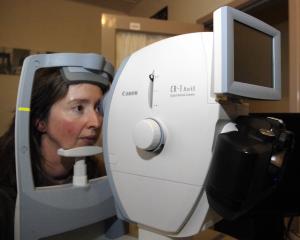The current Otago and former Black Caps batsman was initially shocked by the diagnosis, which came after he went to the doctor for a checkup after feeling uncharacteristically run down and lethargic.
"I had no energy so I decided I had to go to the doctor. When he told me, it was a bit of a shock," he said.
After being diagnosed, Cumming, who is advertising manager for the Lakes District and Central Otago News, said he had to make changes to his lifestyle, particularly his diet.
"The awareness is understanding and reading what's in food. At the end of the day, it's a healthy diet, healthy food and good choices."
These choices equate to more time spent exercising, reading labels on food, and checking sugar content.
"For me, I spend a lot of time reading what's in food," he said.
While his diabetes initially played havoc with his cricket career, Cumming has made a steady return to form by taking control of his life and attacking his diabetes head on.
"Be aware of it. There's enough things we cannot control, so the things we can control we should. Take control of your life."
Cumming's example of a healthy lifestyle is a part of the message being put forward during Diabetes Awareness Week, which runs from November 18 to 25 this year.
Diabetes New Zealand spokeswoman Jane Cooper-Woodhouse said "A person with diabetes cannot 'go it alone'; they need the support of the family.
One of the best ways a family can support is through adopting the same healthy choices and practices that the person with diabetes adopts."
With diabetes at record levels, the awareness message was now crucial, Diabetes New Zealand president Mike Smith said.
Diabetes awareness
• Diabetes is caused by having too much glucose (sugar) in the blood. This happens because the pancreas cannot make enough insulin.
• People who do not make insulin (or very little) have type 1 diabetes. They require insulin by injection plus healthy eating to stay alive. People of any age can develop type 1 diabetes very suddenly.
• People with type 2 diabetes still make insulin but production is sluggish or their body is resistant. Becoming overweight is almost always the cause of insulin resistance and can trigger type 2 diabetes, even in young people.
• 15,000 New Zealanders have type 1 diabetes, 170,000 have type 2.
• The number of people with type 1 diabetes is growing 5% a year, while type 2 diabetes growth is just over 4% a year.
At present, diabetes costs about $600 million a year. By 2011, it will cost more than $1.8 billion a year.
Source: Diabetes New Zealand
- Tim Cossens.











